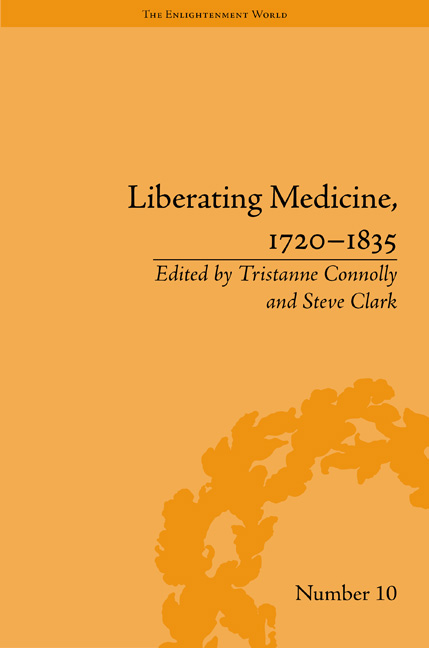Book contents
- Frontmatter
- CONTENTS
- Acknowledgements
- Contributors
- List of Figures
- Introduction
- I Spiritual Sickness and Hypochondria
- II Health and Emancipation
- III Madness
- 8 ‘In sickness, despair, and in agony’: Imagining the King's Illness, 1788–1789
- 9 Disembodied Souls and Exemplary Narratives: James Hogg and Popular Medical Literature
- 10 Idiotic Associations: Wordsworth and Nineteenth-Century Discourses on Idiocy
- IV Anatomized and Aestheticized Bodies
- V Birth
- Notes
- Works Cited
- Index
10 - Idiotic Associations: Wordsworth and Nineteenth-Century Discourses on Idiocy
from III - Madness
- Frontmatter
- CONTENTS
- Acknowledgements
- Contributors
- List of Figures
- Introduction
- I Spiritual Sickness and Hypochondria
- II Health and Emancipation
- III Madness
- 8 ‘In sickness, despair, and in agony’: Imagining the King's Illness, 1788–1789
- 9 Disembodied Souls and Exemplary Narratives: James Hogg and Popular Medical Literature
- 10 Idiotic Associations: Wordsworth and Nineteenth-Century Discourses on Idiocy
- IV Anatomized and Aestheticized Bodies
- V Birth
- Notes
- Works Cited
- Index
Summary
In the early nineteenth century, the emergent field of psychiatry inherited the Enlightenment quest to ‘inquire into the original, certainty, and extent of human knowledge’, as John Locke put it in An Essay Concerning Human Understanding. As both Roy Porter and Kathleen Grange have shown, in this period the term ‘psychiatry’ encompassed both what we would now call ‘psychology’ and ‘neurology’. The ‘combined moral and medical viewpoint’ of psychiatry allowed both those who saw knowledge as a product of the immaterial mind and those who saw knowledge as contingent on the material operations of the brain to continue Locke's epistemological quest. Psychologists did so by considering the emotional elements latent in Locke's Essay and neurologists did so by considering latent physiological elements. Like Locke, thinkers in both fields often invoked examples of mental disability, known in the period as ‘idiocy’, to define the negative limit of human knowledge and to shore up larger projects that aimed to establish the connection between epistemology and morality. But, unlike Locke, who invoked the idiot's lack of ‘Apprehension or thought’ to prove that supposedly universal propositions were not innate, psychologists invoked the idiot to prove that mental illness derived from emotional life. Neurologists, on the other hand, relied on case studies of idiots in order to show that the ‘original’ of idiocy, as an inability to create human knowledge, lay in the organization of the brain, a discovery that offered evidence for the brain as the organ of the mind. At the same time that psychologists and neurologists provided case histories of actual idiots as evidence for the validity of their ‘psychiatric’ projects, William Wordsworth wrote ‘The Idiot Boy’, one of the most famous poems in English about an idiot. This historical confluence has caused some recent critics, including Alan Bewell and Alan Richardson, to consider the degree to which Wordsworth's poem contributes to the discourse on idiocy in the early Romantic period.
- Type
- Chapter
- Information
- Liberating Medicine, 1720–1835 , pp. 141 - 152Publisher: Pickering & ChattoFirst published in: 2014



